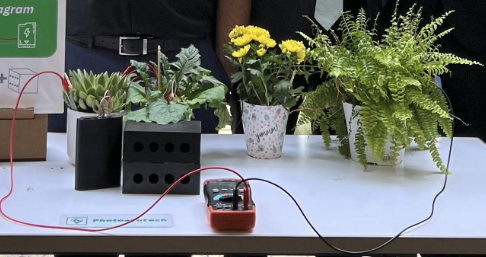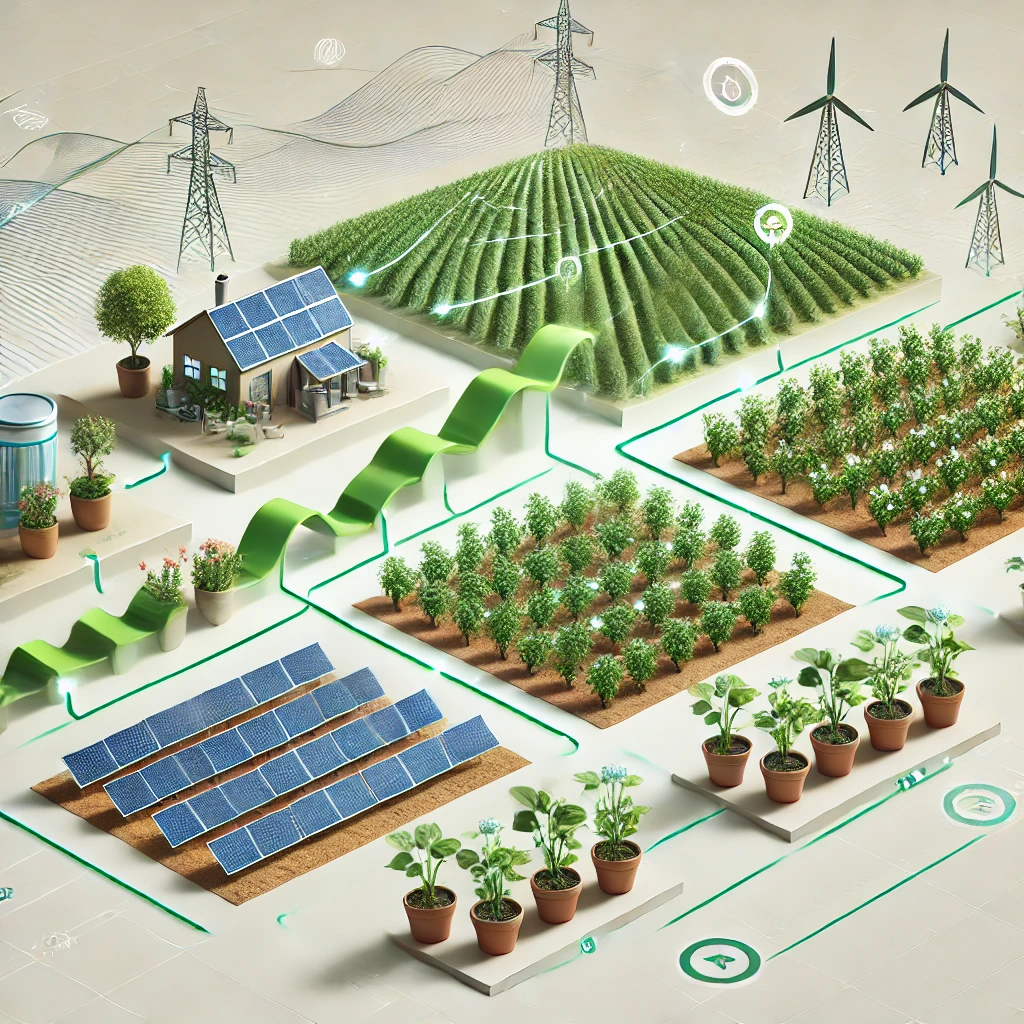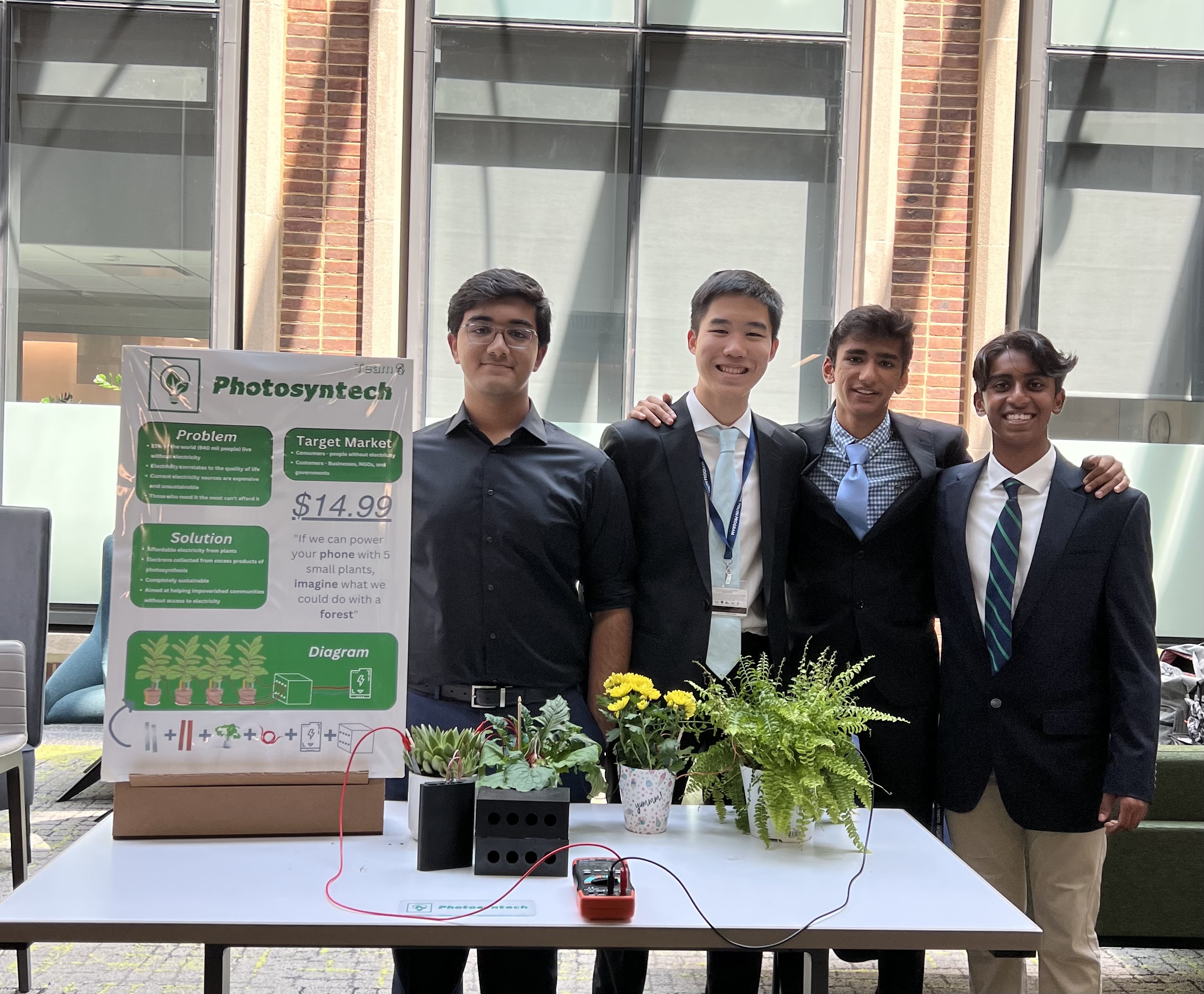Rooted in Nature,
Charged for Tomorrow.
Our Mission

We aim to harness the untapped energy of plants to create sustainable, accessible electricity solutions for communities worldwide. By merging nature and technology, we aim to empower a greener future, reduce environmental impact, and bring reliable energy to those in need.
The Problem
The world faces a critical challenge in addressing the growing demand for energy while minimizing environmental impact. Traditional energy sources like fossil fuels are depleting rapidly, contributing to climate change and pollution.
Millions of people still lack access to reliable and sustainable energy. Current renewable energy technologies, while promising, struggle with integration and efficiency, highlighting the need for innovative solutions.
This research aims to explore the untapped potential of plants as a sustainable and accessible energy source, offering a transformative approach to addressing the global energy crisis.

Our Solution

Harnessing Plant Energy
Our innovative system leverages the natural process of photosynthesis to generate electricity. By utilizing the byproducts of photosynthesis, specifically the organic matter released into the soil, our technology harnesses these electrons to produce a sustainable energy source. This cutting-edge solution taps into the untapped potential of plant energy, offering a clean and accessible alternative to traditional power sources.

Empowering Communities with Localized Energy Solutions
Our solution isn't just about generating energy; it's about empowering communities. By enabling localized energy production directly from plants, we eliminate the dependency on large-scale energy infrastructure. This autonomy allows communities, especially those in rural and remote areas, to have consistent access to electricity, fostering education, healthcare, and economic growth. It brings power closer to the people who need it the most, transforming lives by providing the tools for development and self-sufficiency.

Transforming Energy Consumption
Plant energy not only serves as a renewable source but also as a catalyst for a greener future. By integrating our technology into existing infrastructure, we can significantly reduce the carbon footprint associated with energy production. This shift to plant-based electricity supports global efforts to combat climate change while promoting the growth of local ecosystems.

Scalable and Cost-Effective Innovation
Our system is designed with scalability in mind. Whether implemented in small gardens or large agricultural settings, our technology can be scaled to meet the energy needs of different environments. This flexibility, combined with low production costs, makes it an ideal solution for a wide range of applications. By reducing the financial barriers to entry, we are making sustainable energy accessible to more people around the world, paving the way for a cleaner and more equitable energy future.

Recognition

2023 Wharton Summer Design Fair Winner

2024 Blue Ocean Student Entrepreneurship Competition Top 30 Winner

2024 Diamond Challenge Social Innovation Pitching Round Finalist
About
PhotoSynTech was founded on the belief that everyone deserves access to clean, affordable energy. By harnessing the natural process of photosynthesis, we developed a groundbreaking system that generates electricity from plants. Their vision is to bring this sustainable solution to the 774 million people worldwide who currently live without electricity, providing new opportunities for education, healthcare, and economic growth.

Siddha Kanthi
Co-Founder
Siddha Kanthi, a student at Reedy High School, also found his inspiration during his visits to India. Growing up as the child of immigrant parents, Siddha frequently experienced sudden power outages while in India. These interruptions were a mere inconvenience for him, but they highlighted a much larger issue—the lack of reliable electricity in many regions. Understanding that many people's lives, especially in hospitals, depend on consistent electricity, Siddha was motivated to innovate solutions that could bring reliable, sustainable energy to underserved communities. This passion eventually led to the creation of PhotoSynTech’s plant electricity system, designed to improve the quality of life for millions.

Rohan Kapoor
Co-Founder
Rohan Kapoor, a student at The Wharton School, was deeply inspired by his personal experiences in India, where he witnessed the devastating effects of pollution. The poor air quality in major cities, especially in Delhi, was a harsh reminder of the urgent need for sustainable solutions. Rohan's experiences during these visits, where severe pollution led to school closures and health risks, fueled his determination to combat environmental issues. This drive led him to focus on innovative solutions like plant electricity, aiming to create a cleaner, healthier future for communities across the globe.